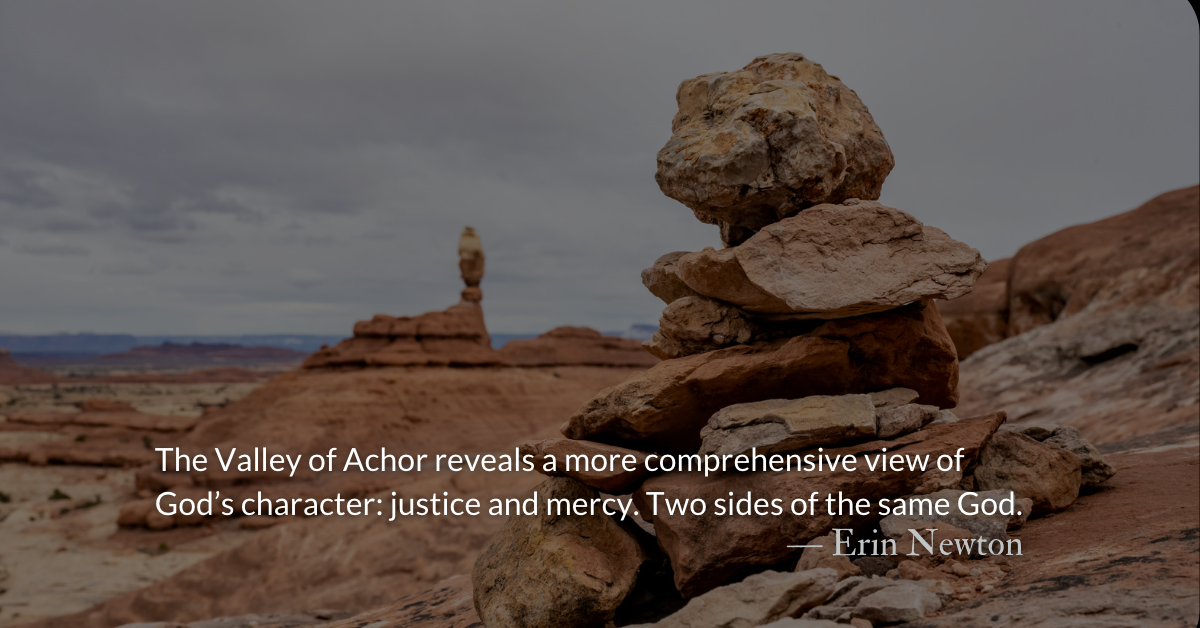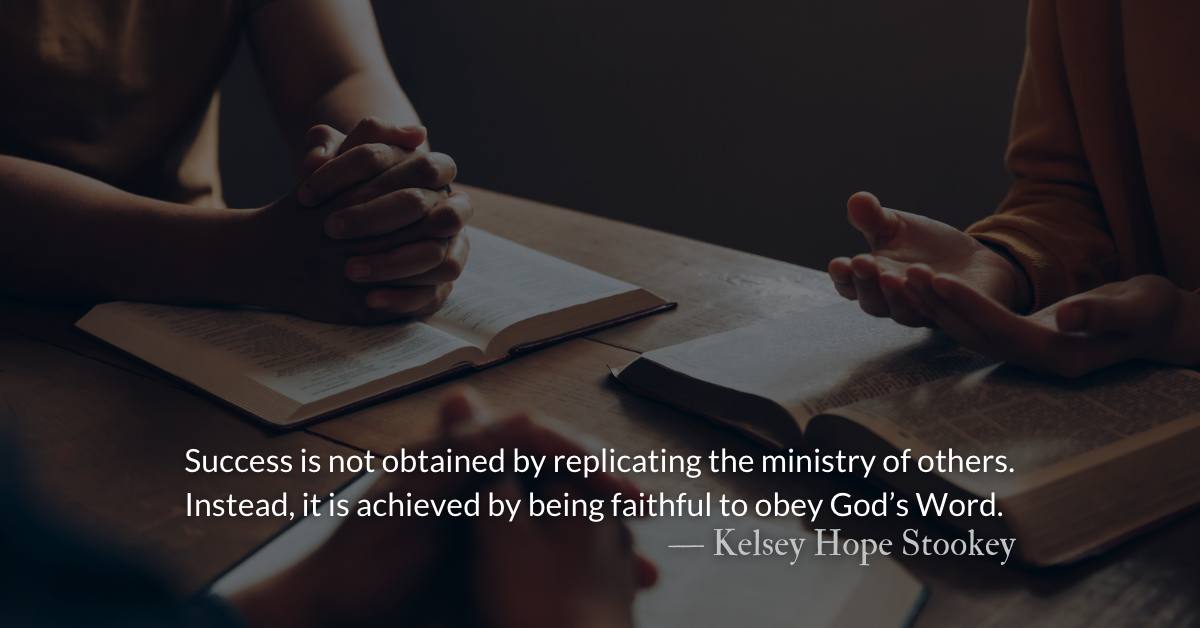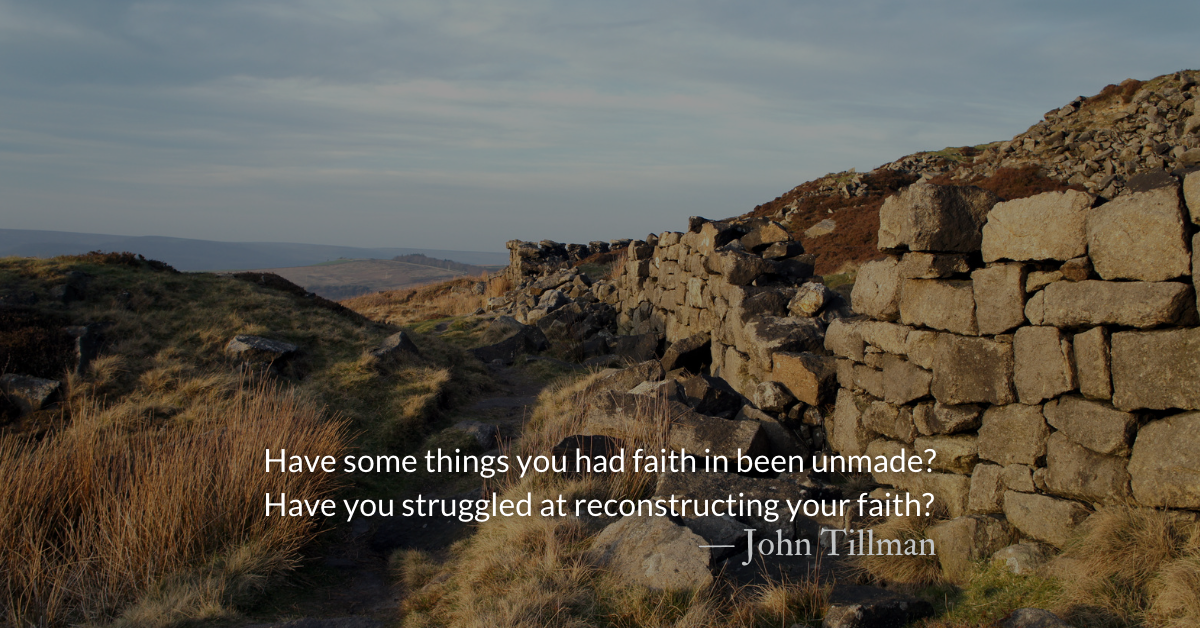Scripture Focus: Joshua 7.25-26
25 Joshua said, “Why have you brought this trouble on us? The Lord will bring trouble on you today.”
Then all Israel stoned him, and after they had stoned the rest, they burned them. 26 Over Achan they heaped up a large pile of rocks, which remains to this day. Then the Lord turned from his fierce anger. Therefore that place has been called the Valley of Achor ever since.
Hosea 2.14-15
14 “Therefore I am now going to allure her;
I will lead her into the wilderness
and speak tenderly to her.
15 There I will give her back her vineyards,
and will make the Valley of Achor a door of hope.
There she will respond as in the days of her youth,
as in the day she came up out of Egypt.
Reflection: Trouble and Hope
By Erin Newton
The memorial stones marking Achan’s death were called “The Valley of Achor” or fully translated, “The Valley of Trouble.” The name was fitting. Trouble came to Israel through Achan. One man’s sin caused the downfall of the community.
Joshua describes Achan’s sin as coveting and stealing. After Jericho, he took items destined to be devoted to God. Implied sins include pride and deceit. It was pride that led Achan to assume authority over what belonged to God. It was deceitfulness that caused Achan to avoid confessing until the very end.
Now just a pile of stones, thrown by the betrayed community and commanded by the betrayed God, Achan’s memorial would serve as a warning to Israel. The justice of God was not something to be overlooked. The warnings about disobedience were important.
God as a wrathful, vengeful deity is a typical assumption when reading the Old Testament. Some people reduce the testaments to the opposing picture of God: wrath in the Old, mercy in the New. This conclusion, however, neglects the fuller picture of God from Genesis to Malachi.
In Joshua, one sinful man is led into the wilderness as punishment. In Hosea, God leads the sinful people into the wilderness as a pathway of hope. The Valley of Achor reveals a more comprehensive view of God’s character: justice and mercy. Two sides of the same God.
Faced with this complex tension of two opposing characteristics, we tend to downplay one for the sake of the other. Our minds struggle to grasp how God can be completely just and completely merciful. It is a dichotomy we will never fully grasp.
How does trouble turn into hope? How does the punishment of disobedience become a beacon of mercy in the wilderness?
Justice and mercy converged on the cross. Like the punishment heaped upon Achan, the weight of our guilt was cast upon the body of Christ. But this monument of justice suddenly becomes a crimson beacon of hope. The justice required after the first Adam is covered by the mercy of the second Adam.
Whereby one man’s sin caused the downfall of humanity, the one Son of God caused the redemption of all creation.
We are not so different from Achan. Our sin would have us trudge into the wilderness to endure justice. But we are also like Israel, we are lured into the wilderness with a promise of restoration and mercy.
Divine Hours Prayer: The Morning Psalm
Seven times a day do I praise you, because of your righteous judgments.
Great peace have they who love your law: for them there is no stumbling block. — Psalm 119.165
– From The Divine Hours: Prayers for Summertime by Phyllis Tickle.
Today’s Readings
Joshua 7 (Listen 4:58)
Colossians 4 (Listen 2:21)
Read more about Distrust of God and Fraud
It is the unbelief and contempt of heaven, which make men risk it for the poor commodities of this world.
Read The Bible With Us
Join our Bible reading plan. Immerse in the Bible at a sustainable, two-year pace.






